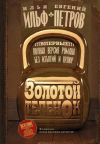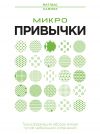Текст книги "Финансист / The Financier"

Автор книги: Теодор Драйзер
Жанр: Иностранные языки, Наука и Образование
Возрастные ограничения: +16
сообщить о неприемлемом содержимом
Текущая страница: 10 (всего у книги 16 страниц)
Chapter XXXVIII
The position of Mrs. Cowperwood was anomalous. Frank felt instinctively now that she knew of Aileen. He was merely awaiting the proper hour in which to spread the whole matter before her. He was thinking of Aileen and how keenly she was feeling for him, and what a mockery his married life now was, and whether he would face a sensible jury, and so on and so forth.
He stepped off the car at Third and Market and hurried to his office. Steger was already there. “Well, Harper,” observed Cowperwood, courageously, “today's the day.”
When Cowperwood came into the crowded courtroom with his father and Steger, quite fresh and jaunty, every one stared. He was, no doubt, guilty; but, also, no doubt, he had ways and means of evading the law. His lawyer, Harper Steger, looked very shrewd and canny.
At two o'clock the district attorney[73]73
the district attorney – окружной прокурор
[Закрыть] stated in a very simple way that the indictment as here presented charged Mr. Frank A. Cowperwood with larceny, and with embezzlement of a certain sum of money.
The trial lasted long. For the first time in his life Frank felt as though he were walking in his sleep. Was this the real Frank Cowperwood of two months before—so wealthy, so sure? He looked at the jury, who gazed at him in return. At the words of the clerk, “Gentlemen of the jury, have you agreed upon a verdict?” the foreman spoke up,
“We have.”
“Do you find the defendant guilty or not guilty?”
“We find the defendant guilty as charged in the indictment.”
Chapter XXXIX
The Eastern District Penitentiary of Pennsylvania, where Cowperwood was now to serve his sentence of four years and three months, was a large, gray-stone structure, solemn and momentous. It stretched its gray length for several blocks along four different streets, and looked as lonely and forbidding as a prison should.
No friends were permitted to accompany him beyond the outer gate—not even Steger, though he might visit him later. The others turned solemnly away.
“Well, good-bye,” he said, shaking hands. “I'll be all right and I'll get out soon. Wait and see. Tell Lillian not to worry.”
He stepped inside, and the gate clanked solemnly behind him. The receiving overseer[74]74
the receiving overseer – надзиратель
[Закрыть], Roger Kendall[75]75
Roger Kendall – Роджер Кендалл
[Закрыть], was a rather capable man—shrewd, not particularly well educated, not over-intelligent, not over-industrious, but sufficiently energetic to hold his position. He knew something about convicts for he had been dealing with them for nearly twenty-six years. His attitude toward them was cold, cynical, critical. He did not permit any of them to come into personal contact with him.
When Cowperwood entered, dressed in his very good clothing—a dark gray-blue twill suit of pure wool, a light, well-made gray overcoat, a black hat, his shoes new and of good leather, his tie of the best silk, his hair and mustache showing the attention of an intelligent barber, and his hands well manicured—the receiving overseer saw at once that he was in the presence of someone of superior intelligence and force.
Cowperwood stood in the middle of the room without apparently looking at anyone or anything, though he saw all. “Convict number 3633,” Kendall called to a clerk.
“You will have to take off your clothes and take a bath,” said Kendall to Cowperwood, eyeing him curiously. “I don't suppose you need one, but it's the rule.”
“Thank you,” replied Cowperwood. “Whatever the rules are, I want to obey.”
There now issued from an adjoining room an assistant, a prison servitor, a weird-looking specimen of the genus “trusty[76]76
trusty – староста
[Закрыть].” He was a small, dark, lopsided individual, one leg being slightly shorter, and therefore one shoulder lower, than the other. He was hollow-chested, squint-eyed, and rather shambling. He was dressed in a thin, poorly made, baggy suit of striped jeans, showing a soft roll-collar shirt underneath, and wearing a large, wide-striped cap.
“You will have to take everything you have out of your pockets,” Kendall now informed Cowperwood. Ordinarily he would have said, “Search the prisoner.”
Cowperwood stepped forward and laid out a purse with twenty-five dollars in it, a pen-knife, a lead-pencil, a small note-book, and a little ivory elephant which Aileen had given him once, “for luck.” Kendall looked at the latter curiously.
“Now you can go on,” he said to the “trusty,” referring to the undressing and bathing process which was to follow.
“This way,” said the latter, addressing Cowperwood, and preceding him into an adjoining room. “Get in there,” said the trusty, whose name was Thomas Kuby[77]77
Thomas Kuby – Томас Кьюби
[Закрыть], pointing to one of the tubs.
“I see,” said Cowperwood. “I will.”
“That's right,” replied the attendant. “How many years did you get?”
“Four and three months.”
“What for?” inquired Kuby, familiarly.
“Larceny,” said Cowperwood.
“Don't forget to wash your head, too,” said Kuby, and went away.
Cowperwood stood there while the water ran, meditating on his fate. It was strange how life had dealt with him—so severely. He was merely unfortunate.
He stepped into the tub and washed himself briskly with the yellow soap. He looked for his underwear, but there was none. At this point the attendant looked in again.
“Out here,” he said, inconsiderately.
Cowperwood followed, naked. He was led into a room, where were scales, implements of measurement, a record-book, etc.
“Step on the scale,” said the attendant, brusquely.
Cowperwood did so.
“Weight, one hundred and seventy-five,” called the attendant. “Now step over here.”
After Cowperwood had once more given his address, age, profession, and he was allowed to return to the bathroom, and put on the clothing which the prison provided for him. Then Kuby produced a blue-and-white-striped cotton bag.
“You'll have to put this on,” Kuby said, and opened it in such a way that it could be put over Cowperwood's head.
When it was fully on, it came to about his chest. Cowperwood felt very strange, very humiliated, very downcast. He was thus conducted down a short walk, then through a long corridor, then through a room of uniformed guards, and finally up a narrow flight of iron steps, leading to the overseer's office on the second floor. There, he heard the voice of Kuby saying:
“Mr. Chapin[78]78
Chapin – Чепин
[Закрыть], here's another prisoner for you from Mr. Kendall.”
“I'll be there in a minute,” came a voice from the distance. Presently a big, heavy hand closed about his arm, and he was conducted still further.
A cell door was reached and unlocked. It was swung open, and the same big hand guided him through. A moment later the bag was pulled easily from his head, and he saw that he was in a narrow, whitewashed cell, rather dim, windowless, but lighted from the top by a small skylight of frosted glass three and one half feet long by four inches wide. A rough iron cot, furnished with a straw mattress and two pairs of dark blue blankets, stood in one corner. There was a hydrant and small sink in another. A small shelf occupied the wall opposite the bed. A plain wooden chair with a homely round back stood at the foot of the bed, and a fairly serviceable broom was standing in one corner. Rats infested the cell, and it gave off an unpleasant odor which filled it. The floor was of stone.
Chapin was the cell overseer—a large, heavy, lumbering man, rather dusty and misshapen-looking.
“Well, now you're here, aren't you?” he asked.
“Yes, I'm here, Mr. Chapin,” Cowperwood replied, simply, remembering his name from the attendant.
To old Chapin the situation was puzzling. This was the famous Frank A. Cowperwood whom he had read about, the noted banker and treasury-looter. Five hundred thousand dollars was a large sum of money in those days, much more than five million would have been forty years later. Chapin was awed by the thought of what had become of it—how Cowperwood managed to do all the things the papers had said he had done.
“Well, now,” he went on, “I don't suppose you ever thought you'd get to a place like this, did you, Mr. Cowperwood?”
“I never did, Mr. Chapin,” replied Frank, simply. “I don't think I deserve to be here now.”
“Well,” continued the old man after a time, “now here's your bed, and there's your chair, and there's your wash-stand, and there's your water-closet. Now keep them all clean and use them right.”
“Yes, Mr. Chapin,” Cowperwood said, politely.
“You're supposed to wash yourself all over once a week,” added Chapin. “And I'll give you a clean towel for that. Next you must wash this floor up every Friday morning. And the rules here are that your wife or your friends can come to see you once in three months, and your lawyer can come every day, I guess, there are no rules about lawyers. But you can only write one letter once in three months yourself.”
“Very well, Mr. Chapin; I understand,” said Cowperwood. “Thank you, Mr. Chapin.”
The old man walked away, and Cowperwood turned his face to the wall, and after several hours sleep eventually came.
Chapter XL
Cowperwood's two weeks soon passed, interlaced with his few commonplace tasks of bed-making, floor-sweeping, dressing, eating, undressing, rising at five-thirty, and retiring at nine, washing his several dishes after each meal, etc. Only his parents, Aileen, and his wife—the latter with mingled feelings of resentment and sorrow—really missed him. Aileen, because of her great passion for him, was suffering most of all. Four years and three months; she thought. If he did not get out before then she would be twenty-nine and he would be forty. Would he love her then? Would she be so attractive? And would nearly five years change his point of view? He would have to wear a convict suit all that time, and be known as a convict forever after. She wanted to help him all she could.
The day after his incarceration she drove out and looked at the grim, gray walls of the penitentiary. They seemed terrible to her. Was her Frank suffering much? Was he thinking of her as she was of him? She drove home, determined to see him.
The next day, she wrote him, describing the drive she had taken and declaring her determination to see him soon. And he wrote her in reply:
“My sweet girl, I'm here, safe enough, and wish I were out, of course. Sweetest, you must be careful. I think I have done you much harm. You must be careful. Perhaps you'll think better, and not come here.”
Conditions had changed Cowperwood. After all, she was Edward Butler's daughter, and she might refuse to become a convict's bride. She might change her mind. She ought not to wait for him. Her life was not yet ruined. The public did not know, so he thought, that she had been his mistress. She might marry. Why not, and so pass out of his life forever. Perhaps, after all, the penitentiary was really breaking his spirit. Because of this, now she was madly eager to console him, even though it was difficult, perilous. She must, she said.
Cowperwood was sick of the whole social life. In fact he wanted to be rid of the turmoil he had been in. His family was not utterly without funds. He had advised them to move, which they had done. Of course all this was a terrible descent from the Girard Avenue mansion for the elder Cowperwood. Everything had to be sold for the benefit of creditors.
There came a day when the two houses in Girard Avenue were sold. Senator Simpson, Mollenhauer, and Strobik came to see what they could get. Simpson secured practically the best of all that was offered.
Within four days after the sale began the two houses were bare of their contents. Aileen was greatly depressed; but she was convinced that Cowperwood would some day regain his liberty and attain a position of even greater significance in the financial world. She could not have said why but she was sure of it.
Chapter XLI
One day Aileen came to see her Frank. Her face was concealed by a thick green veil.
Cowperwood had made his cell as acceptable as possible. It was clean, because he had swept it himself; and besides he had shaved and combed his hair. The caned chairs on which he was working had been put in the corner at the end of the bed. His few dishes were washed and, and his clogs brushed with a brush. Never before, he thought to himself, had Aileen seen him like this. She had always admired his good taste in clothes, and the way he carried himself in them; and now she was to see him in prisoner's garments. But after all, as he thought, he was Frank A. Cowperwood, and that was something, whatever he wore. And Aileen knew it. Again, he might be free and rich some day, and he knew that she believed that.
Best of all, his looks under these or any other circumstances, as he knew, would make no difference to Aileen. She would only love him the more.
When Aileen arrived, she asked murmured:
“I wish to see Mr. Cowperwood, if you please.”
So she was taken to the cell. And then she saw Cowperwood. Aileen looked at Cowperwood from behind her veil, afraid to speak.
“It's all right,” said Cowperwood.
She lifted her veil, and saw the stuffy, narrow thickness of the room, his wretched shoes, the cheap, misshapen suit, the iron door behind him leading out into the little yard. Her Frank! And in this condition! She trembled and it was useless for her to try to speak. She could only put her arms around him and stroke his head, murmuring:
“My poor boy—my darling! Is this what they have done to you? Oh, my poor darling.”
She held his head while Cowperwood winced and trembled, too. Her love was so full—so genuine. And for the first time in his life he lost his self-control. He felt an astonishingly strange feeling, a desire to cry, which he did his best to overcome.
He drew himself quickly away from her, turned his back, clinched his hands, drew his muscles taut; but it was too late. He was crying, and he could not stop.
“Oh, damn it!” he exclaimed, “Why should I cry? What the devil's the matter with me, anyhow?”
Aileen saw it. She seized his head with one hand, his shabby waist with the other, and held him tight.
“Oh, honey, honey, honey!” she exclaimed. “I love you, I adore you. They could cut my body into bits if it would do you any good. Oh, my sweet, my sweet, my darling boy!”
She kissed his eyes, his hair, his cheeks. He exclaimed,
“What the devil's got into me?”
“Never mind, honey darling, don't you be ashamed to cry. Cry here on my shoulder. Cry here with me. My baby—my honey pet!”
He quieted down after a few moments.
“You're a great girl,” he said, with a tender and yet apologetic smile. “You're all right—all that I need—a great help to me; but don't worry any longer about me, dear. I'm all right. It isn't as bad as you think. How are you?”
Aileen on her part was not to be soothed so easily. She stroked his head, tenderly. Her father—damn him! Her family—pooh! What did she care? Her Frank—her Frank. Never, never, never would she desert him, never, come what might. Law—nonsense! People—they were brutes, devils, enemies, hounds! She was delighted, eager, crazy to make a sacrifice of herself. She would go anywhere for or with her Frank now. She would do anything for him. Her family was nothing—life nothing, nothing, nothing. She would do anything he wished, nothing more, nothing less; anything she could do to save him, to make his life happier.
Chapter XLII
The days passed. Cowperwood's wife, mother and sister were allowed to come. His wife and the children were now settled in the little home for which he was paying. He paid her one hundred and twenty five dollars a month.
The day that Cowperwood decided to discuss with his wife the weariness of his present married state and his desire to be free of it was some four months after he had entered the prison. By that time he had become inured to his convict life. The silence of his cell and the menial tasks he was compelled to perform had become dull, but not painful. He had partially gotten rid of the sickening odor of his cell by persuading the attendant to bring him small packages of lime. He had never taken any interest in astronomy as a scientific study, but now the Pleiades, the belt of Orion, the Big Dipper and the North Star caught his attention.
Mrs. Cowperwood came one day quite solemnly, bearing several changes of linen, a pair of sheets, some potted meat and a pie. She was not very doleful.
“Lillian, there's something I've been wanting to talk with you about for some time. I should have done it before, but it's better late than never. I know that you know that there is something between Aileen Butler and me. It's true I am very fond of her and she is very devoted to me, and if ever I get out of here I want to marry her. That means that you will have to give me a divorce, if you will; and I want to talk to you about that now. This can't be so very much of a surprise to you, I am sure.” He paused.
“I know,” she said, rather peacefully, although with a touch of anger and resentment in her voice. “I've known all about it all this time. I expected you would say something like this to me some day. It's a nice reward for all my devotion to you; but it's just like you, Frank. Nothing can stop you. You had two children whom you ought to love, but you had to take up with[79]79
to take up with – связаться с
[Закрыть] this Butler. Everybody talks about you. I know that she comes to this prison. I saw her out here one day as I was coming in, and I suppose everyone else knows it by now. She has no sense of decency and she does not care—the wretched, vain thing. You must be ashamed, Frank, to go on the way that you have, when you still have me and the children and your father and mother! Oh, this Butler—the shameless thing!”
Cowperwood looked at his wife. She was no longer so attractive physically, and intellectually she was not Aileen's equal.
“Lillian,” he said; “I'm not sure that you get what I mean exactly, but you and I are not at all well suited to each other any more.”
“You didn't seem to think that three or four years ago,” interrupted his wife, bitterly.
“I married you when I was twenty-one,” went on Cowperwood, quite brutally, not paying any attention to her interruption, “and I was really too young to know what I was doing. I was a mere boy. It doesn't make so much difference about that. I am not using that as an excuse. The point that I am trying to make is this—that right or wrong, important or not important, I have changed my mind since. I don't love you any more. We have never quarreled about these things, because I didn't think it was important to quarrel about them. I just ask you to let me go. I don't intend to desert you or the children—you will get a good living-income from me as long as I have the money to give it to you—but I want my personal freedom when I come out of here, if ever I do, and I want you to let me have it. The money that you had you will get back when I am on my feet again. But not if you oppose me—only if you help me.”
Mrs. Cowperwood was very resentful.
“That's a nice way to talk to me, and a nice way to treat me!” she exclaimed dramatically. “I might have known that you were too young to know your own mind when you married me. Money, of course, that's all you think of. You only think of yourself, Frank. I never saw such a man as you. You have treated me like a dog. I'll not give you a divorce, and you needn't think it.”
Cowperwood listened in silence. There was no need of saying much more now; the ice had been broken, the situation had been put before her, and time should do the rest.
“Don't be dramatic, Lillian,” he commented, indifferently. “I'm not such a loss to you. I don't think I want to live in Philadelphia. My idea now is to go west, and I think I want to go alone. I shall not get married right away again even if you do give me a divorce. It would be better for the children if you would stay here and divorce me. The public would think better of them and you.”
“I'll not do it,” declared Mrs. Cowperwood, emphatically. “I'll never do it, never; so there! You can say what you want. After all I've done for you!… You needn't ask me any more; I'll not do it.”
“Very well,” replied Cowperwood, quietly, getting up. “We needn't talk about it any more now. Your time is nearly up, anyhow.” (Twenty minutes was supposed to be the regular allotment for visitors.) “Perhaps you'll change your mind sometime.”
She gathered up her muff and turned to go.
“Frank,” she declared, dramatically, at the last moment, “I never saw such a man as you. I don't believe you have any heart. You're not worthy of a good wife.”
Suddenly tears came to her eyes, and she flounced scornfully and yet sorrowfully out.
“Hard words break no bones[80]80
Hard words break no bones. – Брань на вороту не виснет.
[Закрыть],” he said to himself, as his wife went out.
Правообладателям!
Это произведение, предположительно, находится в статусе 'public domain'. Если это не так и размещение материала нарушает чьи-либо права, то сообщите нам об этом.








































